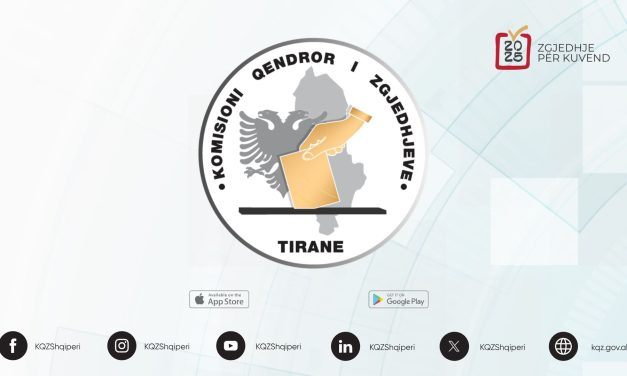“Political commitment to fully implement electoral legislation in good faith is a basic element of a successful elections and a successful electoral reform requires broad consensus, extensive public consultations with all relevant stakeholders, dialogue and loyal co-operation of all actors” – was one of the conclusions of the Conference “Campaign finance, (mis)use of public administration resources and de-criminalisation: Challenges encountered in the 25 April elections and recommendations” organised today in Tirana. The event brought together representatives of the main political parties, state institutions, experts and civil society actors to discuss on strengthening the legal framework and advance the new electoral reform agenda in Albania.
In her remarks, Jutta Gützkow, Head of the Council of Europe Office in Tirana encouraged the political parties and the responsible institutions to start the work for the revision of the Electoral Code and the Law on Political Parties in order to address the main shortcomings identified during the last parliamentary election of 25 April 2021. “A coherent electoral law prepared in an inclusive manner and agreed by consensus well before the elections facilitates the organisation of elections and ensures trust of the citizens in the electoral process” emphasised Gützkow.
Ambassador Reinout Vos underlined that for the Netherlands, it is important that civil society is strong enough to play its crucial role when it comes to increasing transparency of electoral processes or reforms in the country, bringing Albania closer to European and international standards and good practices in electoral matters. “The process of electoral reform in Albania, ensuring transparent financing of political parties and electoral campaigns as one of the key ODIHR recommendations reflected in the EU Council Conclusions is an important milestone. It will be a reflection of the political maturity, what the Albanians want and what they deserve” stressed Ambassador Vos.
Ilirjan Celibashi, State Elections Commissioner pointed out that: “It is of vital importance to initiate a comprehensive and timely electoral reform to implement the latest OSCE/ODIHR recommendations. The CEC would welcome an advisory role in such process as ultimately it is its prerogative to execute the electoral law. Issues like the use of public resources, financing of political parties and decriminalisation, demand to be treated responsibly and seriously to fully guarantee transparency and accountability.
The main Council of Europe standards concerning the misuse of state resources and financing of electoral campaigns were shared and discussed with the participants including the public funding allocation criteria, spending restrictions, candidates funding as well as the audit of election campaign finances.
The Academy of Political Studies conducted consultations and capacity building activities with civil society organisations and media, who subsequently monitored the implementation of the revised electoral legislation on electoral campaign finance and (mis)use of state resources as a direct instrument in fostering accountability and transparency. In addition, the Institute for Political Studies monitored the Decriminalisation Law’s implementation with regards to electoral subjects in the context of the “Decriminalisation and transparency in Albania for clean politicians, elections and public officials” project.
The monitoring data from both initiatives provided a set of recommendations for improving the implementation of the legal framework, in view of the new electoral reform in Albania.
This event was organised with the support of the Action against Economic Crime, part of the joint European Union and Council of Europe “Horizontal Facility for the Western Balkans and Turkey 2019-21022”, phase II and the Embassy of the Kingdom of the Netherlands in Tirana.
